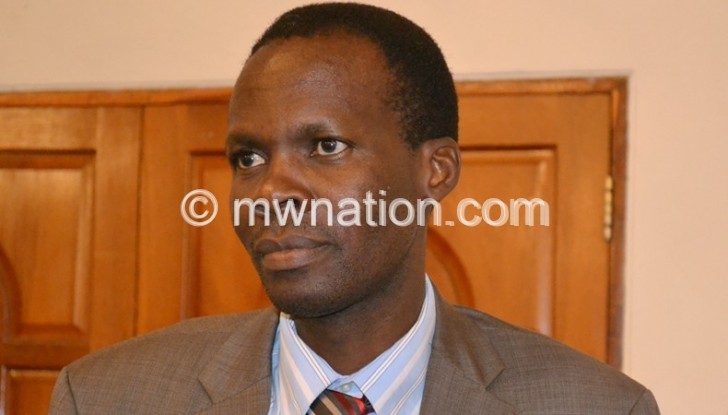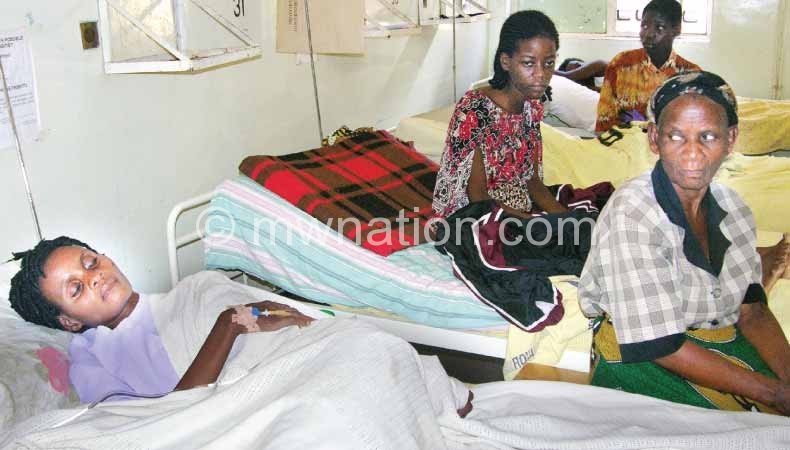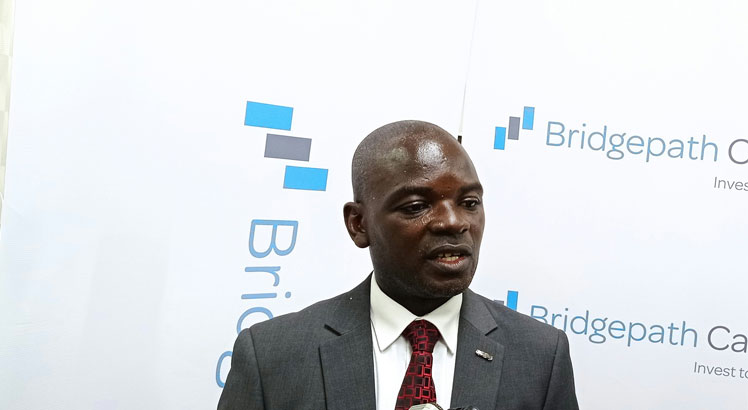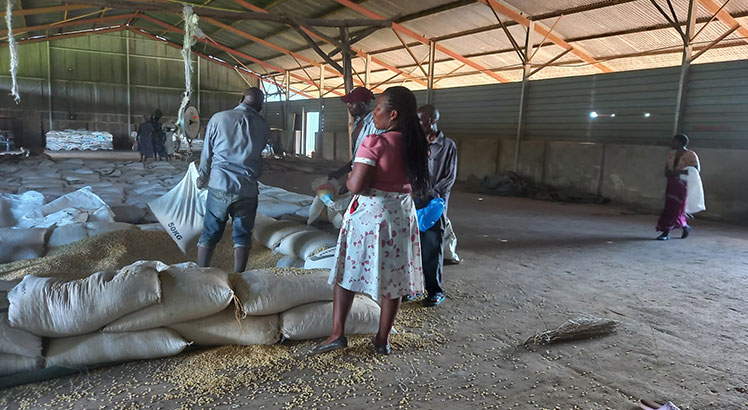Donors insist on off-budget support
Two years after government started implementing measures to strengthen the country’s financial management system, donors have described the budgetary support modality as a leaking bucket which their taxpayers cannot allow to pour their money into.
The donors, who have been channelling their support to Malawi through other means and not the national budget, say they will continue providing off-budget support to Malawi until government seals loopholes in public financial management system.
Meanwhile, government is in a “tight spot” as it has lost control over how are used, Treasury spokesperson Nations Msowoya said this week.

In 2013, donors stopped direct budget support to Malawi after the exposure of looting of national coffers ,dubbed Cashgate, by civil servants and businesspersons.
A British audit firm Baker Tilly hired by government to conduct a forensic financial expenditure check revealed that K24 billion was looted from government.
Government has since then been implementing measures to seal the loopholes in the Integrated Financial Management System (Ifmis), but donors remain unconvinced by the steps taken and have been channelling support through other means such as non-governmental organisations.
The message from donors is that government must do more to seal the ‘leaking bucket’.
Even Malawi’s long-time partner in development, the United Kingdom, has abandoned the porous financial system in favour of off-budget support.
“The UK works with government and in support of national priorities, whilst we cannot work directly through government financial systems at this time. UK funding that is ‘off-budget’ is not ‘off-national priority,’ Department for International Development (DfID) head in Malawi Jen Marshall said yesterday.
Marshall said her government is working with a mix of funding instruments in line with the outcomes of the Financing for Development Conference held in Addis Ababa this year.
“Development assistance from the UK enables the private sector, civil society, academia and others to play their important roles in accelerating Malawi’s development progress,” she said.
Since 2011, when Britain last disbursed budgetary support, the British Government says it will have disbursed about £400 million (over K350 billion) to the country’s social sectors among them health, education, agriculture, water and sanitation and economic development for growth, jobs, incomes and food security.
Marshall added that off-budget support was also meant to relieve pressure off the government’s national budget, but was fully aligned to the government development agendas.

“The UK continues to provide our extensive support through an existing range of non-budget support channels in order to achieve the best possible development results for people living in poverty across the country,” she said.
Germany, which for a long time was part of the Common Approach to Budgetary Support (Cabs) group, also said that it would continue to provide off-budget support as long as the country’s public finance management system remained porous.
“It is the only way of helping Malawi as long as the government’s public financial management system does not guarantee that all financial resources are being used for the intended purpose and in the most effective way,” Germany deputy head of mission Katrin Pfeiffer said this week.
She said Germany’s prime concern was to achieve sustainable development results, hence the country tailored its support to country specific situations.
“We owe it to the Malawian people as well as to the German taxpayer and the German Parliament that our funding is spent to the benefit of the Malawian people and the country’s development. While aligning German development cooperation with Malawi’s own development priorities and strategies, we provide our support in a way which allows us to directly control the flow of our funds,” Pfeiffer said in defence of the off-budget financing mechanism.
She touted “many successes” of the German government in Malawi, among them construction of health centres, increase in the number of health personnel such as specialists and midwives, the social cash transfer and teacher training.
“Germany has continuously been in close discussion with the Malawian Government on assistance and Germany provides substantial assistance to the strengthening of Malawi’s public financial management, “she said.
Head of political, press and information section of the EU in Malawi, James Dolan, said on Wednesday that EU’s disbursements have largely been on-budget.
“It is important to note that EU programmes and projects are largely on-budget, meaning that they are posted in the budget of the government to the benefit of public sector entities,” he said.
He, however, added that the EU strives to use the government systems for channelling its financial assistance to the largest extent possible, but implementation modalities are chosen to fit specific objectives and scope of individual projects.
Government in tight spot
Although the 2015/16 financial statement, as viewed on the Ministry of Finance Economic Planning and Development website indicates projections for how much donors would contribute to the sectors of education, health, agriculture and transport, there is no corresponding monitoring mechanism of how these resources are actually used.
Treasury cannot even ascertain the figure of $1 billion which representatives of the United States of America and Britain’s Michael Nevin bandied about as funds which donors have channelled to various sectors off- budget.
While there is no dispute that the government does not deserve to receive budgetary support in the absence of convincing evidence that the bucket no longer leaks, the Treasury is in a tight spot as Msowoya admitted this week.
Msowoya said it is only in the health sector where donors informed the government that they would support district and central hospitals with funds for service delivery.
‘‘As far as monitoring of their activities is concerned, it is very difficult for government to monitor what [NGOs] are doing in most sectors with the off-budget funds,’’ Msowoya said.
The government is also incapable of measuring the results donors have achieved since the new funding modality became the preferable mode.
‘‘We understand some of these funds are channelled through NGOs. Again, the full details are not made available even though the donors signed up to the aid Transparency Initiative,’’ Msowoya said.
The aid transparency initiatives which Msowoya mentioned are the Paris Declaration on Aid Effectiveness and the Accra Agenda for Action which encourage donor aid to be channelled through government systems.
But the government is fully aware of how it got where it is.
‘‘Donors are citing weak public finance management systems as the reason for their avoidance of channelling funds through the government. But you will appreciate that the government has done quite a lot in terms of strengthening public finance management systems; talk of bank reconciliations, expenditure management and strengthening internal audit,’’ he said.
Msowoya said the decision for the donors to join the system has to be made by the donors.
“As Treasury, we can only do our part, but the decision is entirely theirs,” said a resigned Msowoya.





